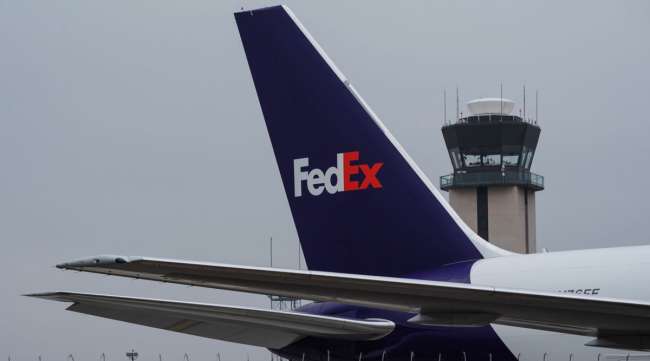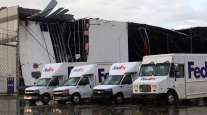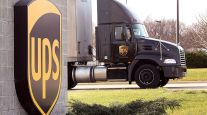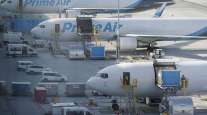Bloomberg News
FedEx Seeks to Add Small Self-Flying Planes for Remote Areas

[Ensure you have all the info you need in these unprecedented times. Subscribe now.]
FedEx Corp. is looking at using small self-flying cargo planes to serve remote areas after experimenting with a technology startup on autonomous aircraft, CEO Fred Smith said.
The effort builds on the courier’s work with Silicon Valley’s Reliable Robotics, which was founded by veterans of Elon Musk’s Space Exploration Technologies Corp. With approval from the U.S. Federal Aviation Administration, Reliable Robotics demonstrated in June a fully automated remote landing of a Cessna 208 Caravan turboprop owned by FedEx.
“This initiative deals with small turboprop airplanes and in this particular case, the single-engine C208, which we’re looking at putting in very remote and uninhabited areas as part of our network,” Smith said Sept. 21 at FedEx’s annual shareholder meeting.
RELATED: FedEx Posts Strong Quarterly Earnings, Fueled by E-Commerce
FedEx pilots shouldn’t be concerned about robots stealing their jobs — for now. It would take decades for technology to replace humans in piloting large freighters, Smith said.
“FedEx has no plans to replace its trunk aircraft fleet with autonomous aircraft,” said Smith, a former pilot in the U.S. Marine Corps. “And I might add on the basis of my 50-plus years of experience in aviation, I think the prospect of large transport aircraft being flown without pilots is highly remote and not something that our crew-force should be worried about in the foreseeable future.”
FedEx ranks No. 2 on the Transport Topics Top 100 list of the largest for-hire carriers in North America and No. 15 on the Transport Topics Top 50 list of North America’s largest logistics companies.
Want more news? Listen to today's daily briefing:
Subscribe: Apple Podcasts | Spotify | Amazon Alexa | Google Assistant | More




